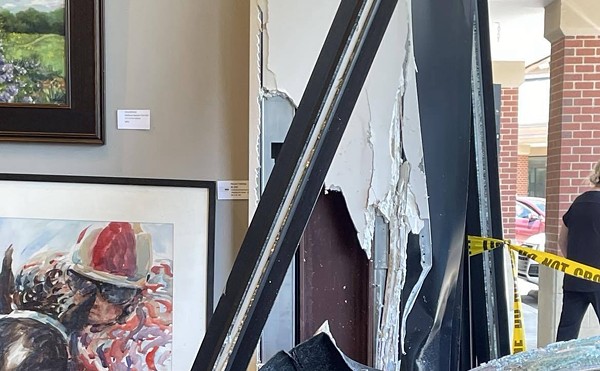It won’t come as a surprise to anybody if I say that we live in a broken world. The evidence is only too clear that things are not right. Some people think it never was right. Opinions vary on that, but the truth is, from our human perspective, things seldom work out the way we want or expect them to. Even when we try to do the right thing, the law of unexpected consequences may trip us up.
Philosophers (and that means anybody who thinks about life at all) have come up with many different answers to the questions that hang over the heads of all humans. Not only, “Why do bad things happen to good people?,†but, “Why do bad things happen at all?â€
As a fan of the Book of Job, I am certain that bad things don’t happen as punishment for evil we have done. From beginning to end, Job, who was certainly not patient, maintained that he did not deserve the ills that had befallen him. He was sure he had done nothing wrong. The answer God finally gave seemed to be that good and bad things just happen, and there’s not much to be done about it.
A theory I learned many years ago from a doctoral student at the Baptist Seminary is that things go wrong because creation is not yet complete. I have since been told by people who know the Hebrew text of Genesis that its first words are, “In the beginning when God began the creation of Heaven and Earth …†If this is so and creation is still in process, some conclude that we are supposed to be active in its completion.
It’s possible, of course, to complain to the Creator about this arrangement. Many of us have argued with The Power that even giving humans free will was a terrible mistake. Obviously most of us are incapable of using freedom constructively. And this is where spirituality — sometimes even religion — comes in.
The Jewish idea of Tikkun Olam, healing the world, breaks the task of completing creation down into small manageable chunks. According to this theory, as I understand it, the universe, physical and spiritual, once was perfect, but something shattered it and sent its parts flying into a jumble of seemingly unrelated pieces. After that, human beings were given the job of reassembling the whole thing perfectly, an overwhelming task we dare approach only when we realize that we are not expected to do it alone or all at once.
This healing takes place not by way of some huge act of magic or heroism, but through each little act of kindness and creativity we contribute to the effort. None of us is expected to move mountains on our own, but working together we may be able to speed creation toward completion.
The impulse to create is an ancient one in the human psyche.
Theologian Matthew Fox has pointed out in many of his writings that we modern humans are discouraged from recognizing our own powers or even our own hunger to create. He sees destruction as the obverse of creation and believes that an alternative to crime and vandalism would be to teach all people how to use their creative energies in positive ways.
French theologian Teilhard de Chardin taught that human beings act as agents of the Creator by serving as transmitters of spirit into the material world, which may lead to the perfection of the universe. According to his writings, the spiritual infusion would lead to what he called the Omega Point, the uniting of all creation in the perfection he termed the “Cosmic Christ.â€
Followers of faiths such as Hinduism and Buddhism believe that through their actions in this current incarnation, they are preparing the next life for themselves. Their positive actions here are seen as creating a world that is more in keeping with the perfection that called the universe into being, than the one they are struggling with now.
For years I was irritated by the words of the poem “Invictus†by Gerard Manley Hopkins when he wrote, “I am the master of my fate, I am the captain of my soul.†I thought Hopkins was giving the individual too much importance. Now, however, I’d take his idea even farther. Not, “I am the master of my fate,†but, “I am the co-creator whose task it is to add an important piece to the pattern of the universe.â€
Janet Irwin is retired from Interfaith Paths to Peace. She writes for Episcopal News, the newsletter of the Episcopal Diocese of Kentucky. Contact her at [email protected]





